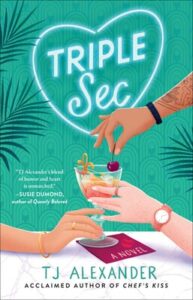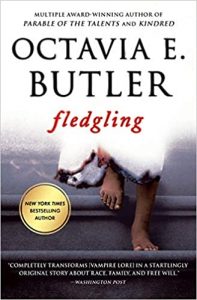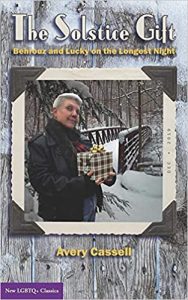Buy this from Bookshop.org to support local bookstores and the Lesbrary!
Before this book had even come out (happy release day, Triple Sec!), I’d already been recommending it nonstop on Our Queerest Shelves. Ever since I finished it, I haven’t been able to stop talking about. It’s definitely one of my favourite books of the year so far, and in my top five favourite romance novels I’ve ever read.
This is about Mel, who is a bartender who’s jaded about love ever since her divorce. But then Bebe walks into the bar, and they have undeniable chemistry. Bebe is interested in dating Mel — she’s also married and polyamorous. Mel has never tried an open relationship, but it seems like a good way to tiptoe back into dating. This will be totally light and casual, right? They mutually agree: no falling in love. And Bebe’s nonbinary wife Kade is so intimidating that Mel can’t imagine actually being a part of their lives. But obviously, feelings don’t obey even the most clearly written out agreements.
I’ve long thought that reality TV shows are missing out by not casting all bisexuals. (Other than that season of Are You the One?) Think of the drama potential! The opportunity for different pairings increases exponentially. Since reading Triple Sec, I feel the same way about romance novels and polyamorous main characters. You can have two falling-in-love scenes in the same romance! Twice the first kisses! Two — or more — completely different relationship (and sexual) dynamics! I feel like I’ve been spoiled and will have trouble going back to two-person romances.
I know romance novels are so specific to each reader, but I loved the relationship dynamics and especially the dialogue. When Mel shows Bebe her tattoo of Pompeii and Bebe replies, “I love a good disaster myself” — look, I also would have fallen in love right then and there. I also liked the friendship between Mel and her roommate, who both agree to follow the good word of Saint Channing Tatum.
It’s also very steamy. I’m not going to get into it, but wow.
I enjoyed the ongoing rewriting of Bebe and Mel’s relationship agreement as they renegotiate things like pet names, catching feelings, and the dynamics between Kade, Mel, and Bebe.
While the central plot is the relationships between Mel, Bebe, and Kade, there’s also a subplot about a cocktail competition. I don’t drink, but I still found it fascinating to read about Mel’s different creations and how she keeps reworking her creations leading up the competition. Winning would mean she could buy her own bar, a dream of hers.
I also liked reading about Mel’s job: Terror & Virtue is a high-end cocktail lounge, and Mel is very skilled and passionate about her work — but it’s also customer service. It means dealing with drunk, rude customers and worrying about your next paycheck. In fact, the only criticism I had with Triple Sec is that I feel like the class difference between Mel and Bebe/Kade wasn’t really explored, other than Mel admiring their apartment and feeling a little out of place. Bebe and Kade are wealthy — Kade is a successful artist and Bebe is a lawyer defending workers’ rights.
That’s a very small complaint, though, especially since the ending didn’t go where I thought it would. If you want a fun, queer, polyamorous romance with lots of kind people learning how to best support each other, I highly recommend Triple Sec.




